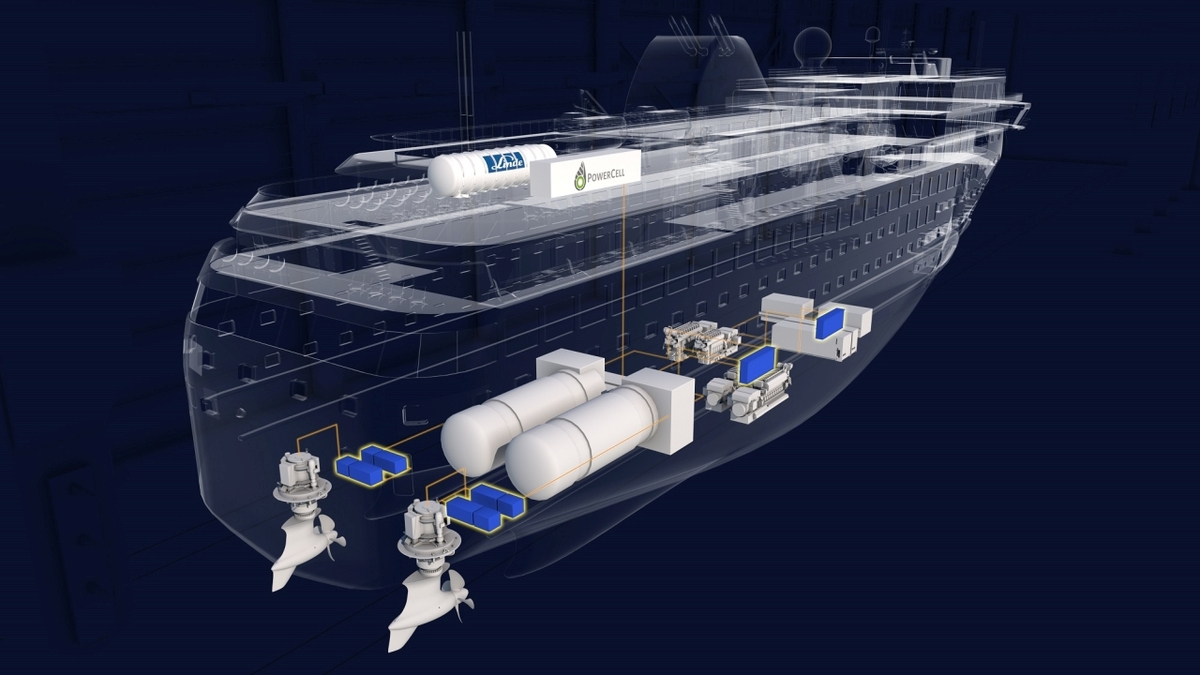High-capacity hydrogen fuel cell project moves towards trials

Illustration of hydrogen propulsion systems with integrated LH2 tank and fuel cells (photo: Havyar)
A Norwegian-funded project aimed at developing ‘the biggest of it's kind’ hydrogen propulsion system for large maritime vessels is moving closer to testing a prototype system
Norwegian shipbuilder Havyard, which won an Nkr104M (US$11.4M) technology development grant from the Norwegian Government in late 2018, ha signed an agreement with separate suppliers for tanks and fuel cells for its prototype hydrogen system.
Havyard Group said its companies would work with cryogenic equipment supplier Linde Engineering and fuel cell technology developer PowerCell to design the hydrogen system, formally entering the approval phase in the project’s certification process.
Havyard said the tank design was key to the project ultimately gaining approval.
“We believe they are the right partner for finding solutions that will ensure safe storage and control barriers for cryogenic hydrogen onboard ships,” Havyard said in a statement. “The regulations for these solutions have not yet been developed, and we are pleased to have Linde on board when entering the approval process, which we expect to be very challenging.”
PowerCell, which will deliver hydrogen fuel cells for the project, has a core fuel cell technology the company has developed for use in the automotive industry.
Havyard Group Free CO2ast project manager Kristian Osnes said the fuel cells have similarities with the battery technology that NES already worked within a number of ferry projects.
Havyard companies are working with Sintef and Prototech research institutions on designing the hydrogen fuel cell system which will be installed on one of four cruise ferries under construction for Norwegian coastal ferry operator Havila Kystruten.
The vessels are scheduled to start sailing in January 2021, and Havila Kystruten’s contracts with the Norwegian Government have a fixed duration of 10 years.
Havyard’s agreement is part of the Pilot-E project, a government-financed initiative for Norwegian business and industry established by the Research Council of Norway, Innovation Norway and Enova.

No comments:
Post a Comment